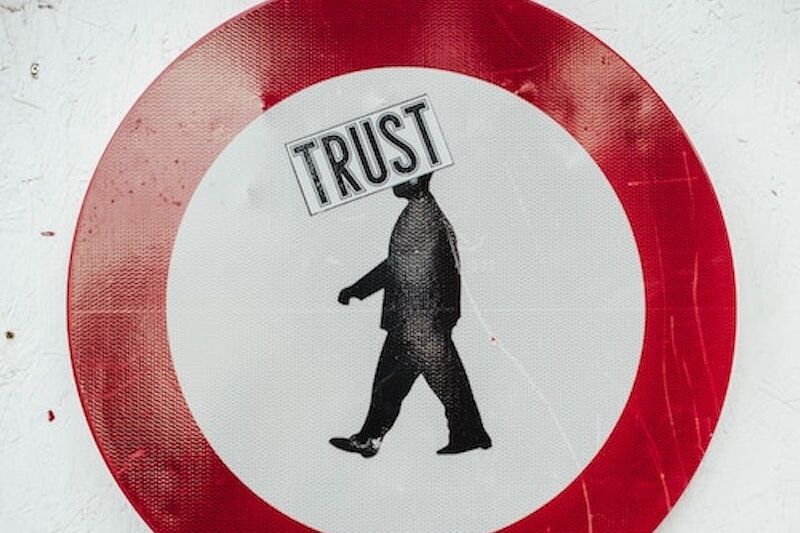By Shaun McKenzie, Executive Coach. Sometimes leaders go first. Guiding the team into uncharted territory. But, will they follow you? It depends. To a large degree, it depends on the amount of trust they have in you as their leader. Trust used to be defined a combination of character and competence. Today that equation looks different. David Maister, the author of The Trusted Advisor, portends that trust in leadership is a well-considered combination of Credibility, Reliability, and Intimacy.
- Credibility – Do you know what you’re doing?
- Reliability – Do you do what you said you would do?
- Intimacy – Do you connect with people on an emotional level?
Consider the metaphor of a cornerstone. Today, the cornerstone on a modern building serves only a decorative function, indicating the year the building was erected. However, years ago it served a more functional purpose. It was the first stone to be set and the mason verified that the cornerstone was perfectly level on all three axis – X, Y and Z. This was to assure that every floor built on top of the cornerstone was straight and aligned. I suggest that Credibility, Reliability, and Intimacy are the modern day coordinates of all healthy working relationships — the cornerstone.
Are You a Trusting Person?
For some leaders, trust is often metered out, a “grace” that must be earned from the team members by their repeated demonstration of desired actions and behaviors. While other leaders trust initially with the trust being eroded by team member’s inaction and behaviors. It’s important to consider where you fall as a leader on this continuum. Leaders less likely to trust may find that they are less trusted by their team members and colleagues. Learn more about trust and team performance.
There is a way to accelerate trust when building relationships. The answer is found in being more transparent, disclosing more about your motivations, and being more emotionally connected with your team members.
Ways to Accelerate Trust
- Share information about your personal motivators, values, and drivers. Offering information about yourself opens the door for others to share. It’s critical that people feel comfortable sharing their personal motivations and career aspirations. Having this information enables you to align their goals with the organization’s goals.
- Apologize when you make a mistake. Saying you’re sorry is not really an apology. A real apology sounds like this. “I apologize. I realize that my actions impacted (fill in the blank) and I hope to perform better in the future.”
- Let your actions speak so loud they hardly hear your words. Follow through on what you commit to do. This is the acid test for building trust. When we take action we model commitment and can then expect the same from the team members.
- Admit your shortcomings, as well as the things you don’t know. Showing a degree of vulnerability reveals your humanity. The days of the boss being an infallible, flawless deity are long gone. People entering the workforce today are looking for their leaders to be authentic and genuine. It’s important to frame shortcomings, mistakes, and errors as learning opportunities.
- Ask for feedback from team members. Ask “What am I doing well and what should I do to create an environment for you (and the organization) to succeed/flourish?” Learn to listen to the feedback by quelling defensive thoughts or emotions. Only ask for input if you’re willing to consider making the change. After a few weeks, double back with the employee to validate that your behaviors are matching their needs.
Finally, do not assume that trust levels are stagnant; trust is dynamic and can change over time, so be sure to reassess the situation periodically. Be mindful not to assume the other person perceives the level of trust in the exact manner you do. Learn more about building trust.
When we trust others it opens the door for more authentic, productive working relationships. It unleashes creativity and innovation, allowing the whole person to be present with you in the workplace with a sense of interconnectedness and respect.
To learn more about building trust and becoming a trusted leader, schedule a consultation with Shaun.

